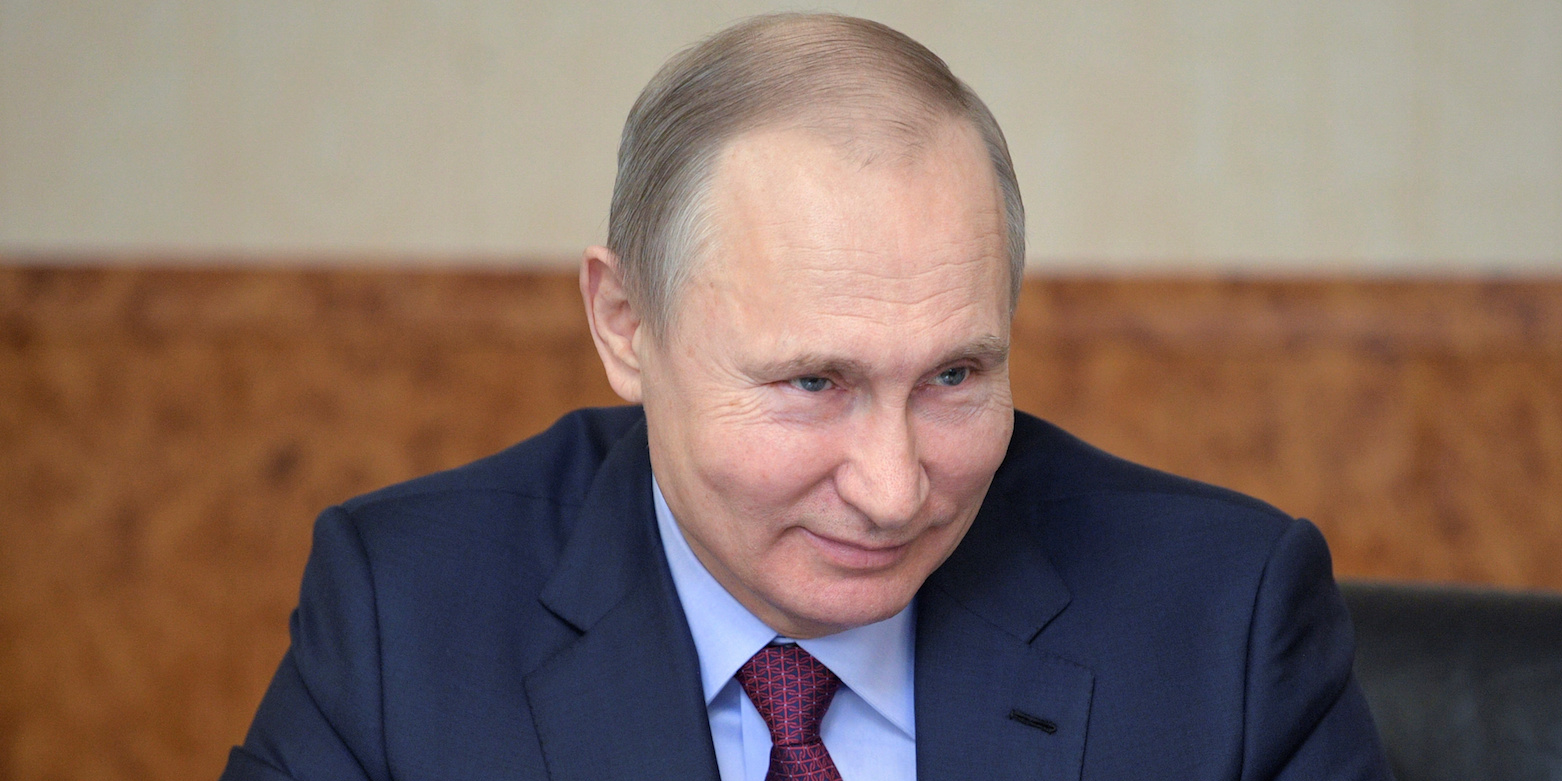- A large delegation of Republican lawmakers met with Kremlin officials this week for an opaque series of meetings in Moscow.
- The lack of transparency gave Russia an opportunity to drive its own narrative of the visit.
- President Donald Trump’s tendency to capitulate to the Russian leader and side with Moscow over the US intelligence community furthered Russia’s goals.
Sign up for the latest Russia investigation updates here »
A large group of Republican lawmakers spent the Fourth of July with Kremlin officials in Moscow for series of rather opaque meetings, the details of which were largely kept shrouded.
To be sure, NPR reported that the seven US senators and one US representative went out of their way to avoid reporters and members of the press while in Moscow.
The lack of transparency afforded Russia the critical opportunity it needed to drive home its own narrative of the visit.
Russian state media celebrated the fact that the trip was the first time since the annexation of Crimea that US lawmakers visited Moscow. Russian officials also boasted that the Americans had come all the way to Moscow to meet them while they offered few concessions.
The state media outlet Moskovsky Komsomolets noted the meetings "were surrounded by a veil of secrecy - journalists were allowed to observe only welcoming words and afterwords, briefly and devoid of specifics."
The murky details - or lack thereof - allowed Russia to tout its own talking points. That goal was likely bolstered by delegation leader Sen. Richard Shelby of Alabama, who struck a conciliatory tone toward Russia during the trip.
Shelby said this week that while Russia and the US are competitors, "we don't necessarily need to be adversaries."
"I'm not here today to accuse Russia of this or that or so forth," Shelby told Vyacheslav Volodin, the speaker of the State Duma, Russia's lower house of parliament. "I'm saying that we should all strive for a better relationship."

Meanwhile, another member of the delegation, Sen. John Kennedy of Louisiana, said in an earlier statement to Business Insider that he wanted to "try to establish some rapport, talk about common interests and discuss common problems" with Russian government officials.
In addition to learning more about the Russian economy, Kennedy said he intended to "talk frankly" about Russia's election meddling in the US, France, and Germany, and its interference in the 2016 Brexit vote.
Kennedy later told the Washington Post that the meetings with Russian officials were "damn frank, very, very, very frank, no holds barred."
"I asked our friends in Russia not to interfere in our elections this year," Kennedy said. "I asked them to exit Ukraine and allow Ukraine to self-determine. I asked for the same thing in Crimea. I asked for their help in bringing peace to Syria. And I asked them not to allow Iran to gain a foothold in Syria."
NPR reported that US lawmakers said they brought up Russia's election meddling in every meeting they held with the Russians.
Russia puts its own spin on things - with help from Trump
But Russian officials presented a different overview.
Vyacheslav Nikonov, another member of the Duma who has met with US lawmakers before, told the Post that this meeting "was one of the easiest ones in my life." He added that the question of Russia's election interference was resolved quickly because it "was raised in general form."
"One shouldn't interfere in elections - well, we don't interfere," Nikonov said.
Nikonov's remarks echoed Trump's from just days earlier, when the president deviated again from the US intelligence community and backed Russia on its claim that it did not meddle in the 2016 race.
Andrei Klimov, the deputy chairman of the International Affairs Committee in the upper house of parliament, also told Moskovsky Komsomolets that US lawmakers didn't raise the topic of Crimea during their meetings.
Klimov's comment also came after Trump, in a stunning break from longstanding US policy, indicated that he is open to recognizing Russia's annexation of Crimea.
"We will have to see what happens," Trump told reporters aboard Air Force One.
Meanwhile, BuzzFeed reported that Trump told G7 leaders last month that Crimea is part of Russia because people in the territory speak Russian - a major acknowledgement of one of Russian President Vladimir Putin's main foreign policy goals.
News of Trump's reported remarks immediately prompted Russian state media to celebrate, with one host declaring, "Crimea is ours! Trump is ours!"

Republican congressmen met with several familiar faces during their visit this week, including Russian foreign minister Sergey Lavrov and Sergei Kislyak, the former Russian ambassador to the US who is now a member of the upper house of parliament.
US intelligence has frequently described Kislyak as a top Russian spy. His name made headlines last year when it surfaced that he met or communicated with several prominent members of the Trump campaign while he was ambassador.
Those conversations make up key portions of the special counsel Robert Mueller's investigation into whether the Trump campaign colluded with Moscow to tilt the 2016 race in Trump's favor.
Kislyak said after his meeting with US lawmakers this week that he already knew many of them from his time in Washington. He also downplayed the opaque nature of the visit.
This week's trip took place after US national security adviser John Bolton visited Moscow to meet with Putin last week. Bolton's meeting was a precursor to a highly anticipated Trump-Putin summit on July 16.
The meeting will come on the heels of the annual NATO summit, which is expected to be a highly contentious gathering in light of Trump's recent remarks. European countries that are part of the alliance are worried, in particular, that Trump will capitulate to the Russian leader and make significant concessions on issues like Ukraine and Syria to the detriment of critical NATO allies.

